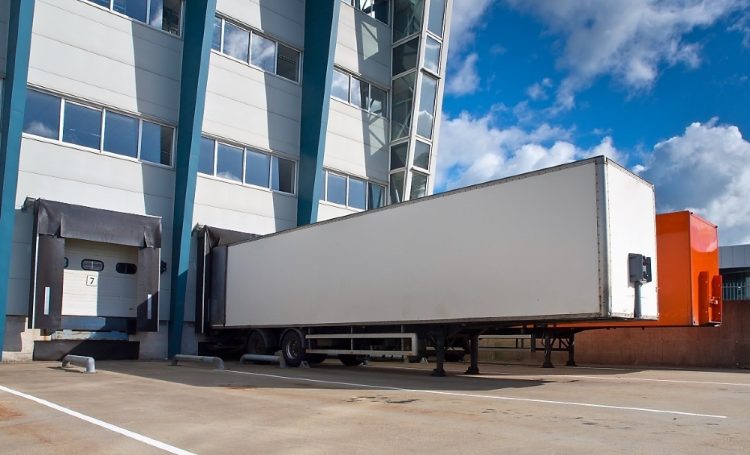Top Things to Look For When Warehouse Hunting

By Angelo Castelda
If you’re a manufacturing company that is currently on the hunt for warehouse spaces, or a transport business looking for storage houses, or any business needing a place for storage and accumulation of goods or items, then this article is made for you. Below, we are going to talk about and enumerate several things to look for when warehouse hunting. However, before completely diving into this, you must first be able to grasp the essence of what a warehouse is and the functions it will serve you. Let’s begin, shall we?
What is a Warehouse?
Warehouses commonly refer to spaces used for the storage of goods, products, or items. Usually, warehouse spaces are used by manufacturers, wholesalers, customs, importers, exporters, transport companies, and so much more. Warehouse spaces are generally plain, extensive facilities or buildings situated on the outskirts of towns, cities, and villages.
Warehouse spaces have different types, and these are as follows:
- Public warehouses
- Private warehouses
- Bonded warehouses
- Cold storage warehouses
Each type serves a different purpose depending on the company or the business’s extent of needs or demands. The following are more detailed information about the different types of warehouses to help you distinguish which type you should acquire for your business:
- Public Warehouses
Public warehouses, from the name itself, are facilities or establishments wherein anyone can store objects or items such as wood and other materials in exchange for cash. Most of the time, warehouse spaces like these are established by either the government or any person from the public. Public warehouses are “common” storage areas where any individual can safely store their materials for as long as they pay for it. The price would typically depend on the government or the owner’s expenses and/or charges.
According to some, public warehouses are very efficient for business people as they are situated near railways and main roads, where it can provide quick facilities for transportation.
- Private Warehouses
Private warehouses, on the other hand, are owned by manufacturing or wholesale businesses. These warehouse spaces exclusively manufacture, store, or produce goods and items only for that specific company. For example, if you own an online shop named FashionExpress, then a private warehouse is solely for FashionExpress alone.
- Bonded Warehouses
Bonded warehouses are facilities or warehouse spaces where you can store goods or materials without having to pay customs or other excise tax until there are withdrawals or removals. The owner enters into a bond (hence, its name) that expenses or duty will only be paid when necessary on products and materials they store. In this type of warehouse, paying customs duty is highly important as this serves as your ticket or permission to move your materials or goods from one place to another.
- Cold Storage Warehouses
From the name itself, these warehouses are made and used for the storage of perishable products and goods such as fruits, vegetables, milk, butter, poultry, and meat. These goods cannot be stored in ordinary warehouses since these require a specific amount of temperatures and better facility or space to stock them.
Functions of Warehouses
Now that you know the different types of warehouses, it’s time to distinguish the functions of a warehouse to have a better and more precise understanding of how warehouses can help businesses when it comes to storage and facility.
- Storage Function
Storage is the first and most basic function of warehouse spaces. Warehouses serve as storage facilities of manufacturing (or any) businesses that need larger areas, especially for surplus goods and commodities.
- All-Around Function
Aside from storage, warehouses can also serve as a distribution center wherein apart from merely storing goods and materials, the facility can also distribute products according to the manufacturer or vendor’s purpose, timetable, etc. In the same way, warehouses can also serve as points of receiving goods or products aside from deployment and distribution.
- Service Function
Warehouses also provide [quality] services to both customers and dealers. This is due to the warehouse’s prompt and efficient way or service of protecting a business’s products, goods, or materials.
There are a lot more warehouse functions to discuss. However, I think that’s about it, enough for us to finally identify and enumerate the things to look for when warehouse hunting.
Things to Look For
- Accessibility
More than location, your warehouse must be accessible to freeways. Accessibility is one of the most crucial factors you need to consider when warehouse hunting. Your warehouse location should allow trucks or large freight transportations to get through to be able to dock, unload, and carry goods or materials to and from the facility. For some reason, some warehouse spaces are placed in locations that make it so hard for large freight to get or pass through.
As mentioned, accessibility or location is the most crucial of all factors as this can make or break your warehouse operations. Take LS Commercial’s warehouse space for rent as an example. These warehouse spaces are situated on locations easy for trucks and other modes of transportation to get to. As a result, there is also a quicker and easier way to load and unload goods and materials.
- Sanitation
Sanitation should also be part of the most important things you need to look for when warehouse hunting, especially if you’re setting up a facility that aims to store food and beverages. More than anything, be on the lookout for any visible pests that may destroy materials you use to make or produce your [perishable] goods.
- Set-Up
Some warehouse may already come with a fully-furnished and entirely set-up shelving and designs while some can be turned over to you as a blank canvas where you can start designing and arranging from scratch. Some businesses avoid this, while some do not. It’d be up to you which way you’d want to go when it comes to the whole set-up of your facility. As for some businesses, they prefer build-to-suit or build-to-rent facilities, which will pretty much be based on their ideas in terms of design. With all these things, make sure that you know your plans for your warehouse space.
- Flexibility
A warehouse’s flexibility or capability to expand is another thing to look for when warehouse hunting. This specific industry or sector is prone to a series of constant changes; hence, your facility should be able to change and adapt to new adjustments in the long run. Because if not, then you’re going to have a hard time since you need to look for new facilities that can house your goods, products, etc.
- Dock Doors
Dock doors are highly important, especially to those businesses concerning the transportation of goods and other products. Will your prospecting warehouse spaces have enough dock doors where you can load and unload any type of goods? It’s also important to consider a facility’s number of entries and exits, types, location, and its proximity to your storage areas.
There are a lot of things and factors to consider when warehouse hunting. Your warehouse will serve as your storage facility where your primary source of income (goods and other materials) is produced, stored, and taken away from delivery. Upon warehouse hunting, it’s best to consider prior mentioned factors to make sure that you have everything under control before commencing operations, production, or distribution.—CONTRIBUTED
 Angelo Castelda works as a contributor to a news magazine in Asia. He loves to learn and understand diverse cultures and aims to share through his writing his experiences around the world.
Angelo Castelda works as a contributor to a news magazine in Asia. He loves to learn and understand diverse cultures and aims to share through his writing his experiences around the world.




